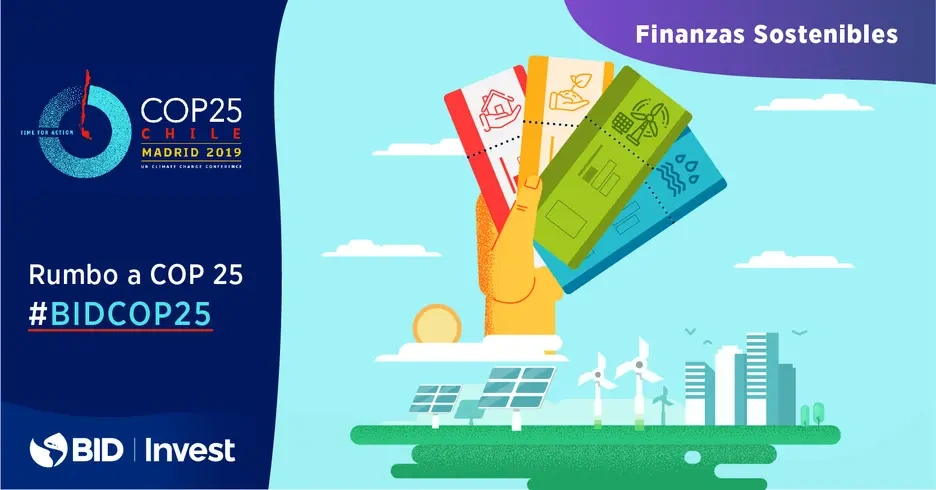Transparency is the Key for Thematic Bonds' Success

Many different financing tools aim to support sustainable development projects. Among such tools, thematic bonds are the most promising and have the highest potential.
What are thematic bonds? Thematic bonds are debt securities issued by both the public and private sectors on the condition that the funds obtained are used to finance projects with a social and environmental impact.
The market currently offers different types of thematic bonds, which, depending on the asset being financed, fall into four main categories:
- Green bonds. Green bonds are used to finance projects linked to energy efficiency, renewable energy, clean transportation, and green buildings, among others.
- Social bonds. The funds raised by social bonds are used to support initiatives such as access to basic infrastructure, affordable housing, financial and social inclusion, or gender equality.
- Sustainable bonds. Sustainable bonds are used to finance projects with both environmental and social impacts.
- Blue bonds. Blue bonds are a more recently introduced type of thematic bond linked to ocean conservation.
The most developed thematic bond market is for green bonds. According to data collected by the Climate Bonds Initiative, in 2018, green bonds worth $167.6 billion, social bonds worth $14.2 billion, and sustainable bonds worth $21.0 billion were issued worldwide. Meanwhile, blue bonds are still nascent (the first blue bond was issued by the Seychelles in October 2018).
The leading green bond issuers are the United States, China, and France. Latin America and the Caribbean were late to join the thematic bond trend, and account for just 2 percent of the global aggregate total, with Brazil (which has issued 41 percent of the region’s thematic bonds), Chile, and Mexico as the top issuers. The majority of thematic bonds in the region have traditionally been issued by public sector companies, government-backed entities, or development banks, while participation of the commercial banking sector and private corporations has been limited. To date, thematic bond issuance in Latin America has reached $13.6 billion, according to a market study carried out by the CBI, the IDB, IDB Invest, and the UNDP.
You may also like:
- Why Does Latin America and the Caribbean Need to Discuss About Proptech?
- What Can Latin America and the Caribbean Expect from the Machine Learning Revolution?
- Six LatinFinance 2019 Awards Recognizing IDB Invest’s Efforts
A wonderful instrument
At IDB Invest, we think that thematic bonds are a wonderful instrument to contribute to closing financing gaps and to support the achievement of the United Nations Sustainable Development Goals in Latin America and the Caribbean. In fact, the institution recently structured and subscribed to the first gender bond in Latin America in Panama, and it has participated in similar projects in several other countries in the region, including Colombia, Argentina, Peru, and Mexico.
However, if we want to further develop this financing tool and ensure a diversified market with competitive interest rates, we must convince both issuers and investors to consider thematic bonds as a mechanism to drive long-term sustainable growth.
So, how do we convince them? With sustained efforts to raise awareness of this issue, of course, but above all, with increased information and transparency to generate trust among market participants, because the distinguishing characteristic of thematic bonds is that they are debt securities that only finance certain projects. The question is how to ensure that the monies will be used for the intended purpose, and who will be responsible for oversight.
This is where regulations and principles have a role to play in advancing best practices in the use and management of the resources generated by thematic bonds and the indicators that we should disclose to ensure confidence in the market. In that sense, the International Capital Market Association (ICMA) has developed its Green Bond Principles, Social Bond Principles, and Sustainability Bond Guidelines, although there is still much more to do to standardize disclosure criteria, homogenize indicators, and impose generalized issuance and verification rules that are globally accepted by all market players.
Transparency matters
The above principles have helped to guide issuers’ commitments regarding the projects financed, consequently promoting best practices—including the adoption of appropriate measures to mitigate the environmental and social risks associated with such projects—among market participants.
In this process of generating trust, however, ensuring the participation of external certification agencies whose evaluation would serve as an independent second opinion to validate that the conditions agreed in the bond issuance are met, and that the funds obtained are actually used to finance appropriate projects, is of the utmost importance.
The road ahead for the region is long, but its potential is significant. IDB Invest will always be a potential partner for issuers and private sector companies that aim to strengthen their growth strategies from a long-term sustainability perspective.■
LIKE WHAT YOU JUST READ?
Subscribe to our mailing list to stay informed on the latest IDB Invest news, blog posts, upcoming events, and to learn more about specific areas of interest.
Subscribe



